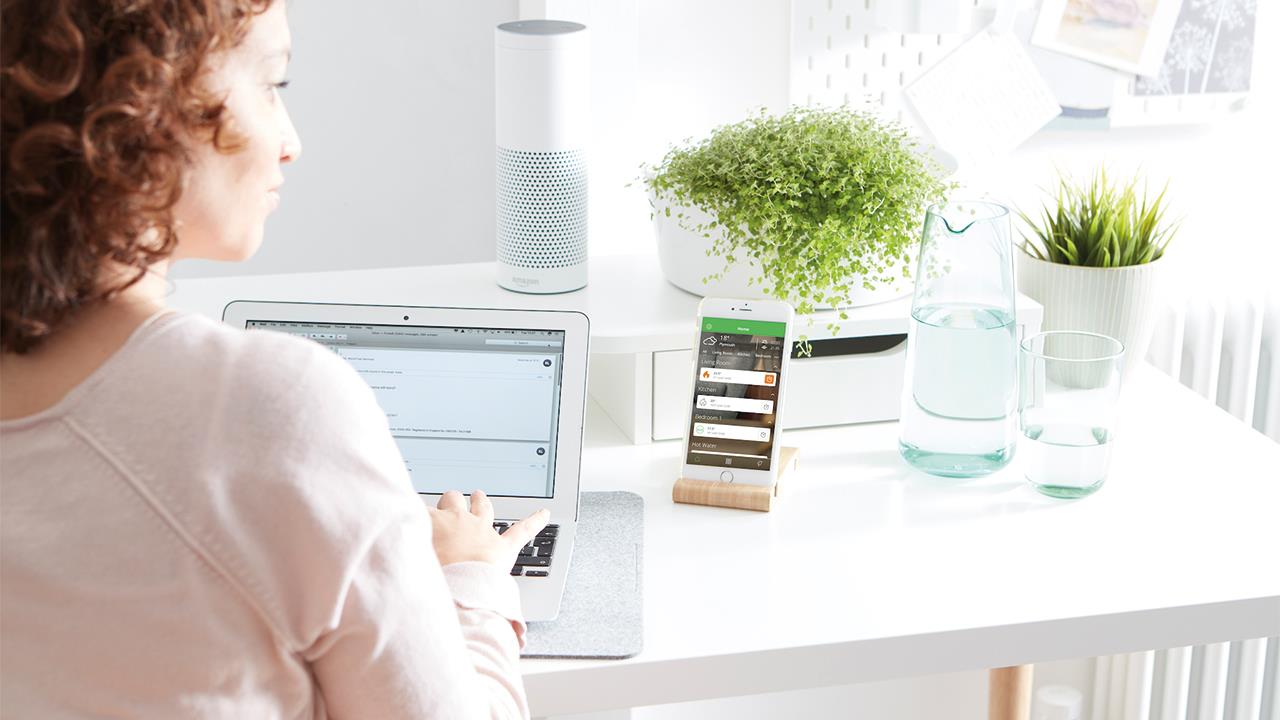

Remi Volpe, Managing Director at Drayton, addresses some common questions about the suitability of smart heating controls and the range of benefits a smart control can offer in different situations.
Thanks to the different functions that smart controls offer, they are no longer exclusive to the tech savvy generation. So, what are the features and benefits of smart controls that installers should be aware of in order to confidently recommend smart solutions to a wide and diverse range of customers?
With multi-generational living on the rise, schedules in these homes are more likely to change at short notice and there’s a high chance that different heating requirements will be needed throughout the house at different times of day.
This is where an app-controlled smart heating control system can be hugely beneficial. As well as allowing homeowners to create a personalised heating schedule, it also provides them with the connectivity and flexibility to adjust the schedule remotely on their phone should plans change.
Additionally, by fitting smart radiator thermostats and utilising the multi-zoning capabilities offered by many smart heating control systems, homeowners can refrain from heating rooms that may not be used all of the time.
While fitting a smart heating control a may sound like a big job, there are plenty of options available on the market that can be easily retrofitted onto an existing system without requiring too much work or causing disruption to your customer.
When dealing with a retrofit job, it’s important to check that the control chosen is compatible with any existing wiring or fittings that will remain, as this will help streamline the installation. Additionally, if a multi-zoned system is being created and smart radiator thermostats need to be installed, look for an option that is compatible with existing radiator valves.
Whenever you’re recommending a heating control, careful consideration must be taken to ensure it will be suitable to the specific needs of the customer. In the situation of a customer with limited mobility or health conditions, a smart control that can be activated through an app on the customer’s phone can be an ideal option.
Over the past year, working from home has become more common than ever, so smart heating controls that allow homeowners to set room-by-room schedules, rather than one schedule for the whole home, will help ensure that energy is not wasted.
By fitting smart radiator thermostats to achieve individual room temperature control, this can help reduce energy bills by 20% compared to fitting a smart thermostat alone. Additionally, choosing a heating control with ‘smart’ modes can help to make the system more efficient too.
Meanwhile, for customers who may go back to the office on occasion but are still mostly working from home, a feature like ‘Away Mode’, found on Wiser thermostats, is the easy way for users to de-activate the heating schedule via a quick tap of a button without having to re-programme the schedule.
Functions such as these give homeowners the peace of mind that their heating system is working as efficiently as possible and energy isn’t being wasted. For customers who really want to understand their energy usage, some smart heating controls will also offer detailed reports.
If you'd like to keep up-to-date with the latest developments in the heating and plumbing industry, why not subscribe to our weekly newsletters? Just click the button below and you can ensure all the latest industry news and new product information lands in your inbox every week.